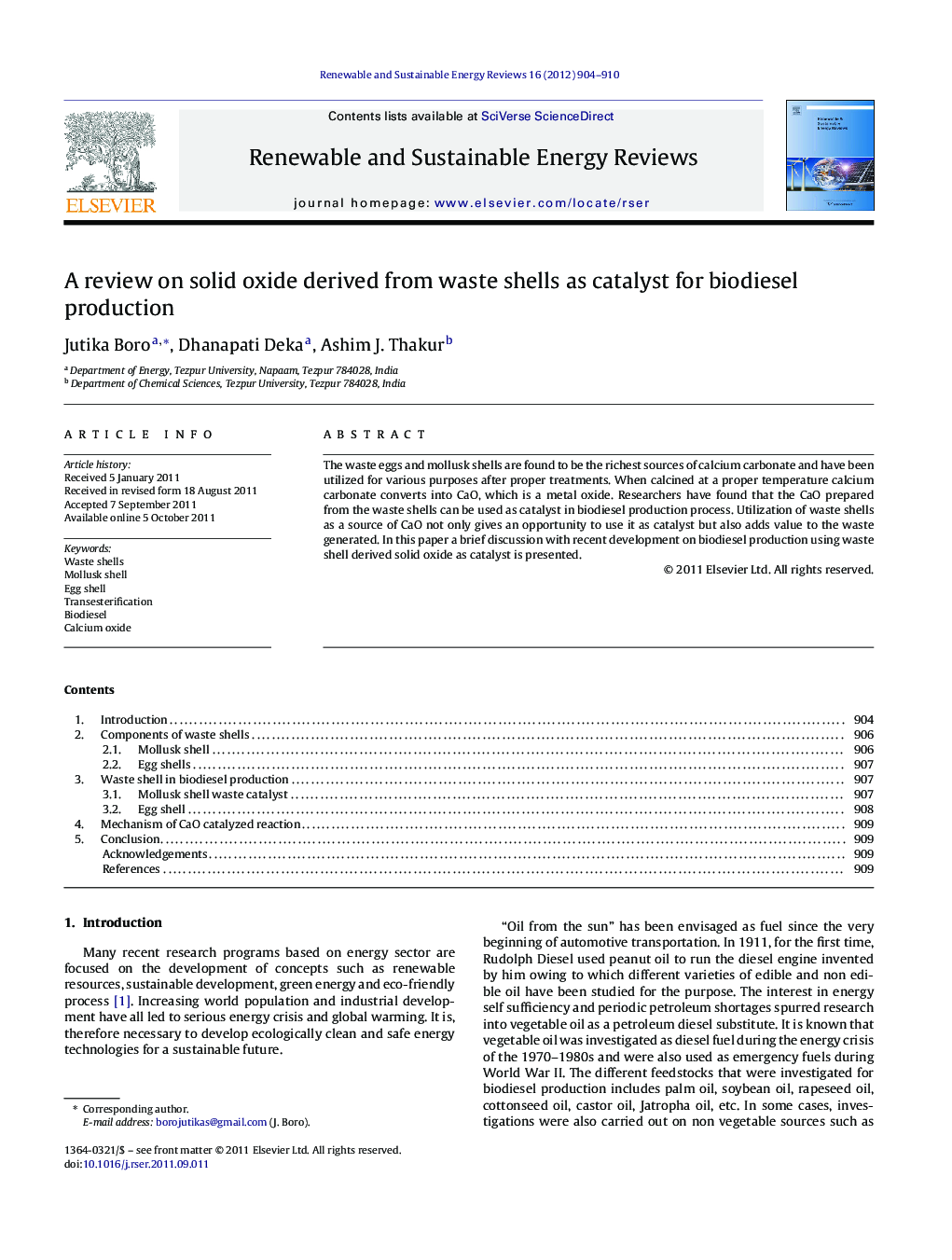| Article ID | Journal | Published Year | Pages | File Type |
|---|---|---|---|---|
| 1751310 | Renewable and Sustainable Energy Reviews | 2012 | 7 Pages |
Abstract
The waste eggs and mollusk shells are found to be the richest sources of calcium carbonate and have been utilized for various purposes after proper treatments. When calcined at a proper temperature calcium carbonate converts into CaO, which is a metal oxide. Researchers have found that the CaO prepared from the waste shells can be used as catalyst in biodiesel production process. Utilization of waste shells as a source of CaO not only gives an opportunity to use it as catalyst but also adds value to the waste generated. In this paper a brief discussion with recent development on biodiesel production using waste shell derived solid oxide as catalyst is presented.
Related Topics
Physical Sciences and Engineering
Energy
Renewable Energy, Sustainability and the Environment
Authors
Jutika Boro, Dhanapati Deka, Ashim J. Thakur,
